Daniel Torregrosa
Aspects of Terminological and Named Entity Knowledge within Rule-Based Machine Translation Models for Under-Resourced Neural Machine Translation Scenarios
Sep 28, 2020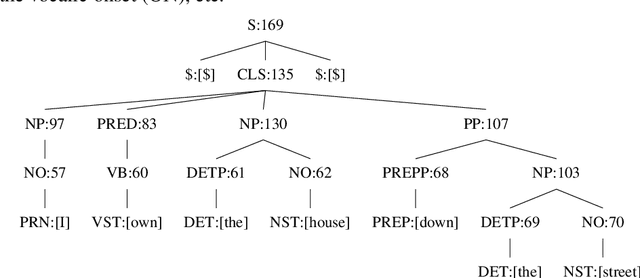
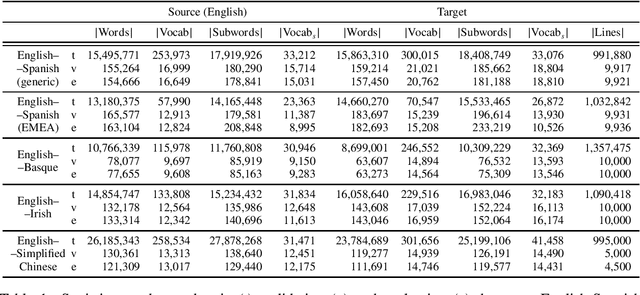
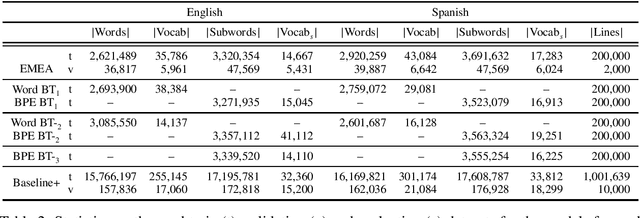

Abstract:Rule-based machine translation is a machine translation paradigm where linguistic knowledge is encoded by an expert in the form of rules that translate text from source to target language. While this approach grants extensive control over the output of the system, the cost of formalising the needed linguistic knowledge is much higher than training a corpus-based system, where a machine learning approach is used to automatically learn to translate from examples. In this paper, we describe different approaches to leverage the information contained in rule-based machine translation systems to improve a corpus-based one, namely, a neural machine translation model, with a focus on a low-resource scenario. Three different kinds of information were used: morphological information, named entities and terminology. In addition to evaluating the general performance of the system, we systematically analysed the performance of the proposed approaches when dealing with the targeted phenomena. Our results suggest that the proposed models have limited ability to learn from external information, and most approaches do not significantly alter the results of the automatic evaluation, but our preliminary qualitative evaluation shows that in certain cases the hypothesis generated by our system exhibit favourable behaviour such as keeping the use of passive voice.
Fast Neural Machine Translation Implementation
Jun 07, 2018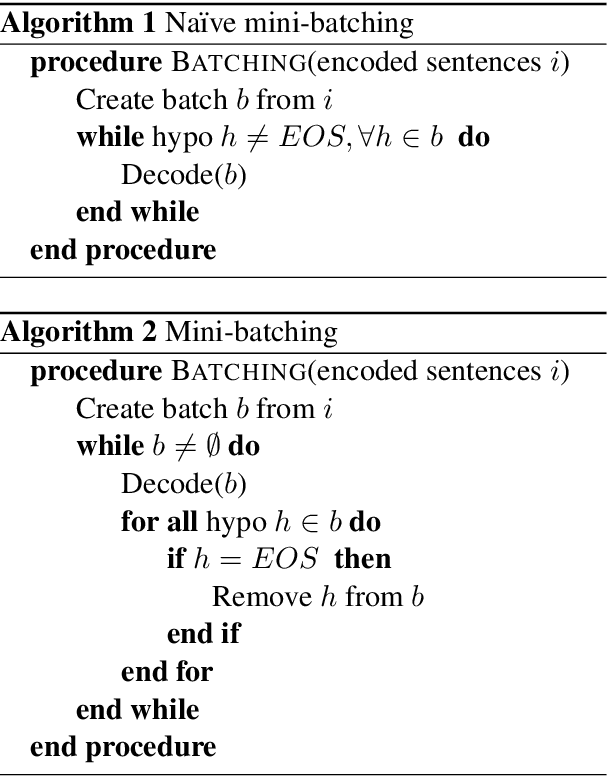
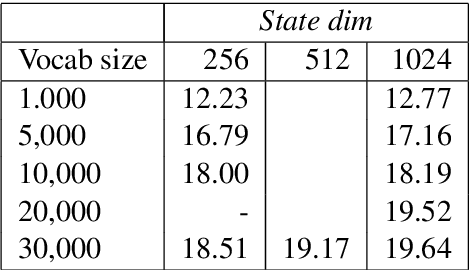
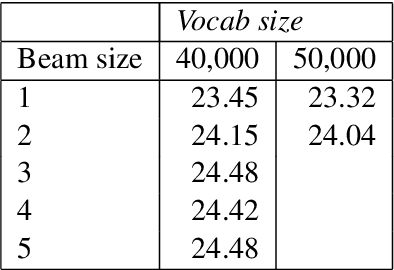
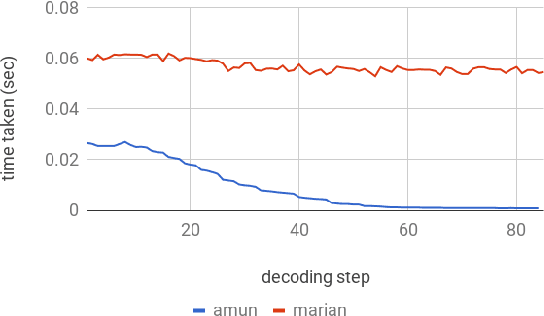
Abstract:This paper describes the submissions to the efficiency track for GPUs at the Workshop for Neural Machine Translation and Generation by members of the University of Edinburgh, Adam Mickiewicz University, Tilde and University of Alicante. We focus on efficient implementation of the recurrent deep-learning model as implemented in Amun, the fast inference engine for neural machine translation. We improve the performance with an efficient mini-batching algorithm, and by fusing the softmax operation with the k-best extraction algorithm. Submissions using Amun were first, second and third fastest in the GPU efficiency track.
 Add to Chrome
Add to Chrome Add to Firefox
Add to Firefox Add to Edge
Add to Edge